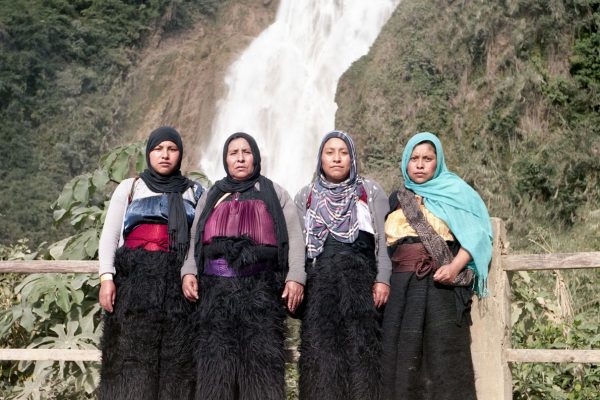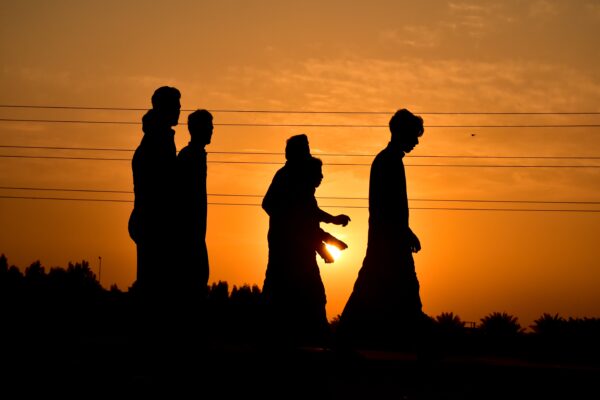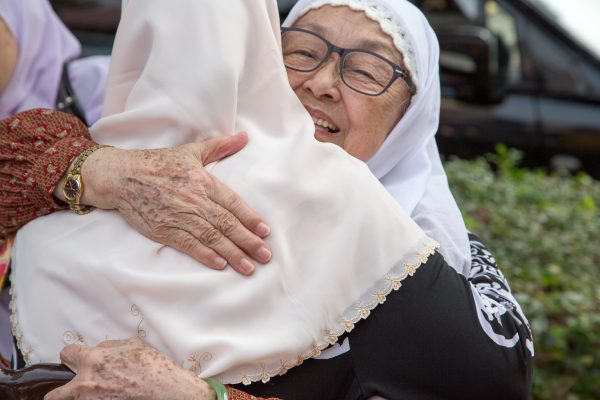I felt as if I was torn between my desire to practice Islam and attempts to stay loyal to my family and my roots. Could I be Russian and Muslim at the same time?
I felt as if I was torn between my desire to practice Islam and attempts to stay loyal to my family and my roots. Could I be Russian and Muslim at the same time?
Ah, those teenage years, when you try to understand who you are and where you belong, but for some reason keep doing silly and crazy things… You join different groups of peers to share their values and aspirations only to become disillusioned and move to another one, and none of them seems to satisfy your expectations. Sounds familiar?
I’ve been there too. To be honest, I thought I was a relatively trouble-free teenager. I wasn’t interested in alcohol, smoking, parties, or boys, so much so that even my parents tried hard to “liberate me” and to make “more social”. Like most teenagers, I ended up rebelling, but in a way that was a bit strange for a common middle-class Russian girl: at the age of 15-16, I converted to Islam.
One could assume it was just a fad, since teenagers often tend to swing from one extreme to another. However, it turned out to be one of the best decisions in my life and I never regretted it. It doesn’t mean that my becoming a Muslim was smooth and hassle-free. In fact, it was the opposite, because this decision coincided with the time when I was trying to find my place in the society and in the world, identify myself, and understand how to conciliate my Russian roots with this new religious affiliation.
I love my culture, I am proud of my nation’s history, I admire the Russian language, and without false modesty, I know it very well. But there were some aspects of the modern Russian culture that I could not appropriate. For example, I couldn’t stand celebrations of holidays, because alcohol was always an integral part of them. For some reasons, most Russians think it is not possible to have fun without drinking, although I personally don’t see any connection at all. I didn’t enjoy Russian weddings: firstly, there was alcohol…secondly, it is common to have different silly contests, many of them being explicitly inappropriate. When I was a teenager, I wasn’t popular with boys, and my Mum kept persuading me that I would not achieve much unless I make myself attractive for men.
Converting to Islam seemed like a logical continuation of this stance. By converting, I tried to define my own path and kind of throw the gauntlet to Russian society. But after a short period of excitement and spiritual uplift, I found myself isolated. When my parents found out about my conversion, they said I betrayed my family and my nation, and nullified all their efforts to raise me as a smart and sensible woman. I mentioned to them that Vladimir the Great, the founder of the first Russian state, also betrayed the pagan beliefs of his ancestors by choosing Christianity over all other religions (by the way, he didn’t choose Islam only because it prohibited alcohol, saying “Drinking is the joy of all Russians“), but that didn’t persuade them. I felt as if I was torn between my desire to practice Islam and attempts to stay loyal to my family and my roots. Could I be Russian and Muslim at the same time?
Hoping to find like-minded friends, I went to a local masjid, where I met another Russian convert. Apart from the two of us, there were only elderly Tatar women in the masjid. When they found out we were Russians, some of them told us to “go back to our church”, and even demanded that we recite Al Fatihah to prove that we were Muslims. We were also blamed for not knowing the Tatar language (in their opinion, it was not possible to practice Islam for non-Tatars).
This was the time when I got interested in Turkish culture and learned the Turkish language. Teenagers often have this “all-or-nothing” approach, and that’s what happened to me too. I plunged into this culture, fell in love with the Turkish music, adopted Turkish fashion and even the way to tie the headscarf (only much later did I realize that it made my face look square and didn’t suit me at all). I even went as far as choosing a Turkish name for myself and eventually getting married to someone from that cultural background, because I wanted to practice my religion without being frowned at and to find inner peace. That was a big mistake — no marriage, friendship, or any external influence can bring you inner peace unless you find it by yourself!
After that, I acquired some Asian friends. It was easy to get along with them, but only because most of my acquaintances were UK-born and raised. When it came to everyday cultural aspects, the difference in mentalities and habits still separated us like a wall. Malaysian cuisine seemed a bit bland, but at least I was able to eat it. As for Bengali or Indian dishes, I couldn’t taste them at all, because every dish considered “not spicy” or “maybe just a little bit” made me tear up and provoked reflections on dragons and the way they feel when spitting fire. I didn’t grow to like shalwar kameez, ghararas, or saris – they are colourful, bright, and pretty, and make you look absolutely stunning, but when I wear them I can’t help feeling like a Christmas tree, especially if it is coupled with all that jewelry I got for my wedding.
A Russian convert’s story: Single mothers don’t have to settle for less
Then I tried joining the community of converts in Russia. It wasn’t difficult, because their numbers kept growing every year, and we shared not only the same cultural background and language, but also the same problems, such as lack of understanding in the family, the aggressive attitude of society, and difficulties related to job searches or studies. But the more I communicated with converts, the better I realized that a person doesn’t have to share your religious beliefs to be a true friend.
After relocating to Saudi Arabia, I recalled all my previous lectures on intercultural communication that I had studied in university. In particular, I remembered all those theories mentioning how cultures differ in terms of their attitude towards time, context, and uncertainty avoidances. I still cannot get used to the fact that “bukrah inshaAllah” can mean anything ranging from “perhaps, in a week” or “I’m not going to do that even in a year, just being polite”, but it hardly ever means “tomorrow, inshaAllah” (and that’s how I usually interpret it). As for punctuality, I am definitely closer to the Germans than the Arabs!
The thing is, I tried to find an ideal community where I would fit perfectly, but such a community does not exist. If I admired something in a culture, there were other things that I couldn’t understand or accept. I loved colourful Malaysian clothes, but wasn’t interested in the language. I liked Turkish cuisine and the Turkish language, but went off Turkish music. I was getting along with Tatars, but as a Russian, I could never be a part of their inner circle. And when I met Arabs, I saw that practicing one religion does not necessarily unite people.
Ten years down the line, I no longer try to find a perfect cultural community to join. I learned to take the best from every nation. I learned to taste (not necessarily to eat!) the Indian cuisine and grew to like the Arab one. My daughter sings Russian folks songs and loves wearing shalwar kameez. We have friends of all ethnic and religious backgrounds and we welcome anyone, as long as they respect our values. Growing in this diverse world is no longer a challenge to me, but a gift, because now I take small pieces from every culture and make my own colourful, unique, and truly cosmopolitan jigsaw puzzle.





